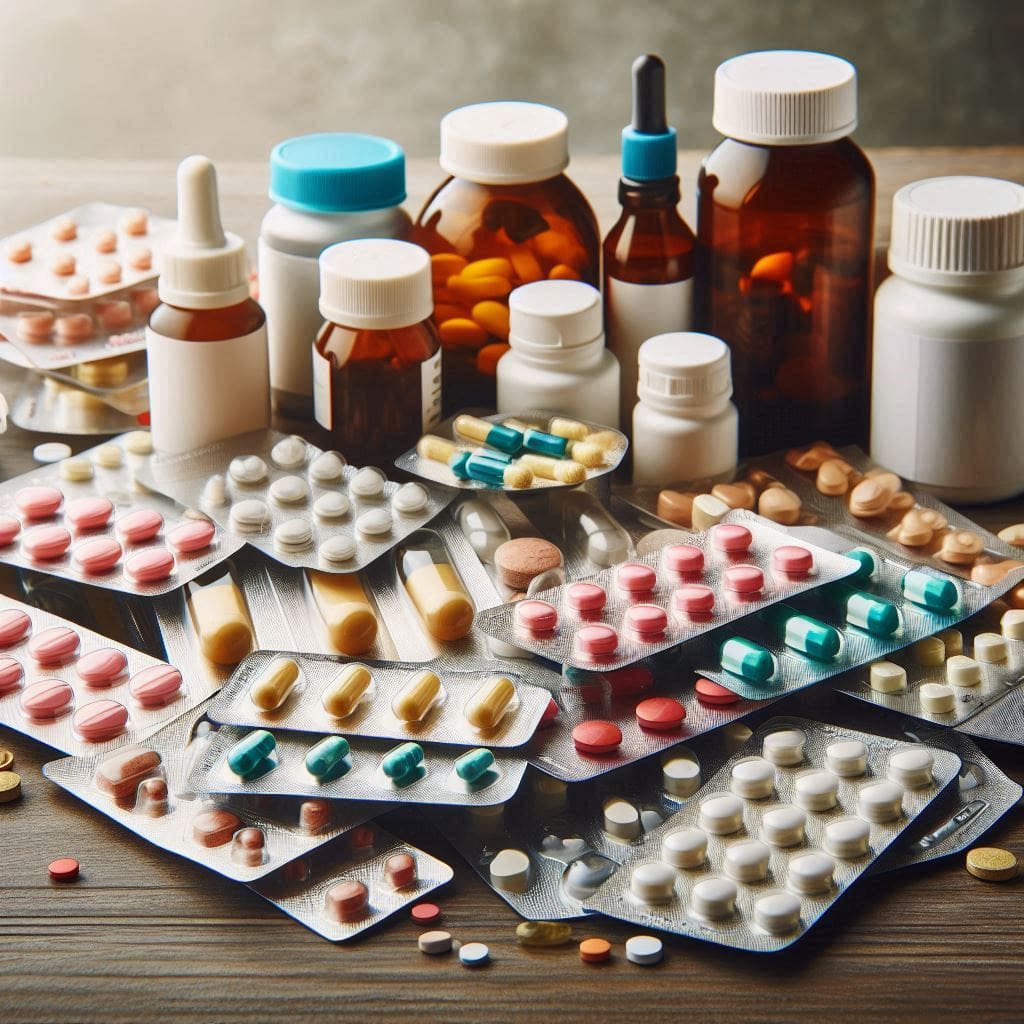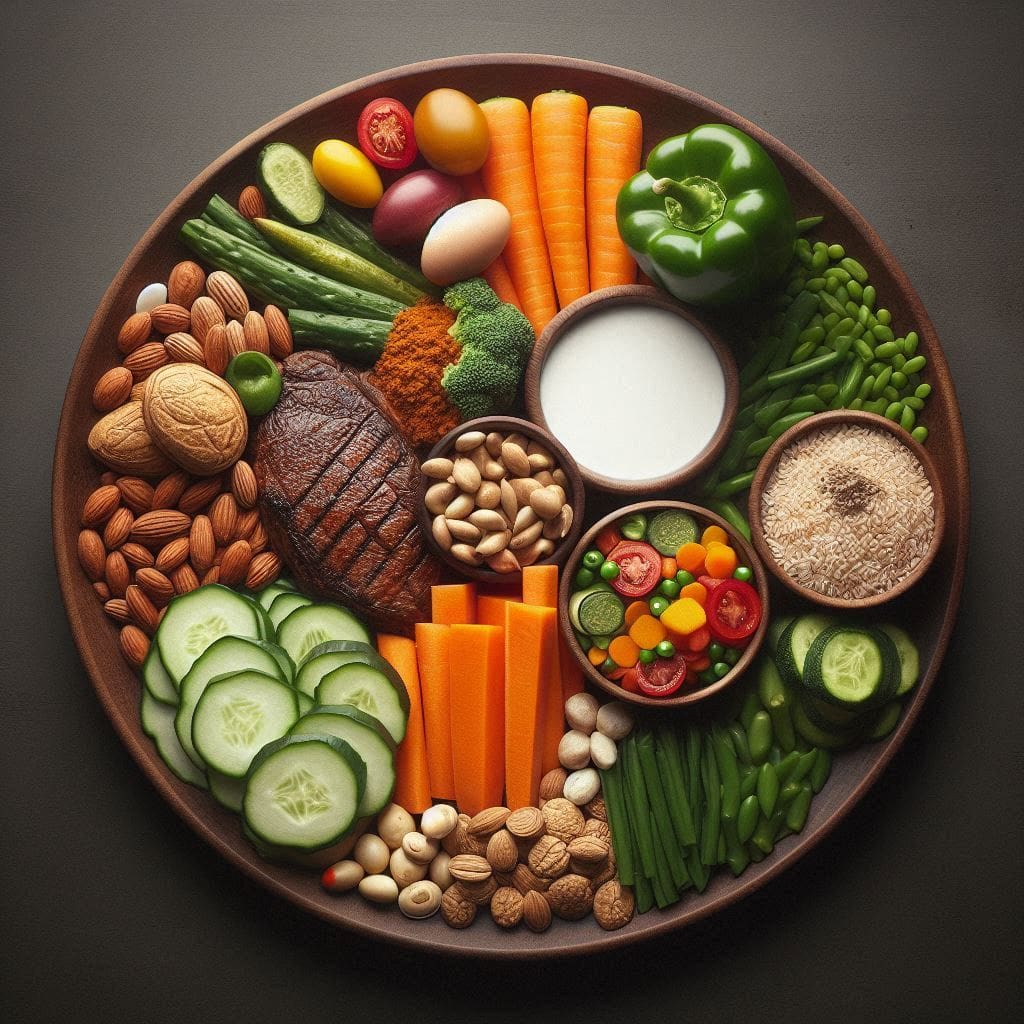Introduction
Peptic ulcer disease (PUD) is a widespread condition affecting millions of people globally. It’s characterized by the formation of open sores or ulcers in the lining of the stomach, duodenum (the first part of your small intestine), or esophagus (the tube connecting your mouth to your stomach).
These ulcers can cause discomfort, burning pain, and sometimes lead to complications if left untreated.
Understanding the causes of peptic ulcers, available prevention strategies, and the different treatment options is crucial for effectively managing this condition.
This comprehensive guide will delve into all aspects of peptic ulcer disease, empowering you to take charge of your digestive health.
Causes of Peptic Ulcer Disease
The delicate balance between stomach acid, a powerful digestive juice, and the protective mechanisms lining your stomach and intestines plays a vital role in preventing ulcers.
When this balance is disrupted, ulcers can develop. Here are the primary causes of peptic ulcer disease:
1. Helicobacter pylori (H. pylori) Infection:
This bacterium is a significant cause of peptic ulcers. It lives in the stomach lining, weakening the protective mucus layer and making it more vulnerable to damage by stomach acid.
H. pylori infection is often spread through contaminated food or water, or through close contact with someone infected.
It’s important to note that having H. pylori doesn’t always lead to ulcers. Many people with the bacteria never experience any symptoms.
2. Non-steroidal Anti-Inflammatory Drugs (NSAIDs):
These widely used pain relievers, such as aspirin, ibuprofen, and naproxen, can irritate the stomach lining and increase the risk of ulcers, especially with long-term use.
NSAIDs work by inhibiting the production of chemicals that help protect the stomach lining from acid. This can leave the stomach more susceptible to damage, particularly in individuals with a higher risk of ulcers.
3. Excessive Alcohol Consumption:
Alcohol can irritate the stomach lining and stimulate the production of stomach acid. This double whammy can damage the stomach lining and increase the risk of ulcer formation.
Additionally, heavy alcohol use can interfere with the healing process of existing ulcers.
4. Smoking:
Smoking not only hinders the healing of ulcers but also weakens the protective barrier in the stomach lining. This makes smokers more susceptible to ulcer development and complications.
Smoking can also constrict blood flow to the stomach, which can slow down the healing process.
5. Stress:
While stress doesn’t directly cause ulcers, it can worsen symptoms and hinder healing in individuals already affected by PUD. Chronic stress can increase stomach acid production and weaken the digestive system’s defenses, making it harder for ulcers to heal.
Other Less Common Causes:
Certain medical conditions, such as Zollinger-Ellison syndrome (a rare tumor that causes excessive stomach acid production), and some medications like chemotherapy drugs can also contribute to peptic ulcer formation.
Risk Factors for Peptic Ulcer Disease
Several factors can increase your risk of developing peptic ulcer disease. These include:
- Age: People over 60 are at a higher risk, possibly due to decreased production of protective stomach lining and a greater likelihood of having H. pylori infection.
- Genetics: Having a close family member with a history of peptic ulcers may slightly increase your risk.
- Certain medical conditions: Diseases like Crohn’s disease and chronic obstructive pulmonary disease (COPD) can increase the risk of ulcers.
- Surgery: Some surgical procedures, particularly those involving the stomach or intestines, can increase the risk of ulcers.
Symptoms of Peptic Ulcer Disease
The most common symptom of peptic ulcer disease is a burning or gnawing pain in the upper middle abdomen. This pain often occurs between meals or at night when your stomach is empty and can be relieved by eating or taking antacids.
Other signs and symptoms of peptic ulcers may include:
- Feeling of fullness or bloating in the upper abdomen
- Loss of appetite
- Nausea or vomiting
- Unexplained weight loss
- Dark, bloody stools (melena)
- Vomiting blood or coffee-ground-like material (hematemesis)
If you experience any of these symptoms, especially persistent or severe pain, it’s crucial to seek medical attention promptly. Early diagnosis and treatment can help prevent complications and promote faster healing.
Complications of Peptic Ulcer Disease
If you don’t get treatment for peptic ulcers, they can cause some serious issues. These include:
- Internal bleeding: Ulcers can erode blood vessels in the stomach or duodenum, causing internal bleeding. This can manifest as black, tarry stools (melena) or vomiting blood or coffee-ground-like material (hematemesis). Even a small amount of bleeding can be serious and requires immediate medical attention.
- Perforation: A severe complication occurs when an ulcer penetrates the entire thickness of the stomach or intestinal wall, creating a hole. This can cause intense pain, severe infection (peritonitis), and even be life-threatening.
- Scarring and blockage (stricture): Healing ulcers can sometimes cause scar tissue to form. In severe cases, this scar tissue can narrow the passageway in the stomach or duodenum, leading to difficulty passing food (stricture). Symptoms of a blockage can include nausea, vomiting, and bloating after eating.
Diagnosis of Peptic Ulcer Disease
Diagnosing peptic ulcer disease typically involves a combination of the following:
- Medical history and physical examination: Your doctor will discuss your symptoms, medical history, and any medications you’re taking. They may also perform a physical exam to check for tenderness in your abdomen.
- Upper endoscopy: This minimally invasive procedure involves inserting a thin, flexible tube with a camera (endoscope) down your throat and into your stomach and duodenum. The doctor can directly visualize ulcers and collect tissue samples for biopsy, if necessary.
- H. pylori testing: Several tests can detect H. pylori infection, including blood tests, stool tests, and a breath test.
- Barium swallow X-ray: While less common, an X-ray using a barium contrast solution may be used in some cases to visualize ulcers in the upper digestive tract.
Treatment of Peptic Ulcer Disease
The primary goals of peptic ulcer treatment are to:
- Reduce stomach acid production
- Eradicate H. pylori infection (if present)
- Promote ulcer healing
- Prevent recurrence
The specific treatment plan will depend on the underlying cause of your ulcer, its severity, and any complications present. Here’s an overview of the common treatment options:
- Medications:
- Proton pump inhibitors (PPIs): These are the most effective medications for treating peptic ulcers. They work by significantly reducing stomach acid production, allowing ulcers to heal and preventing new ones from forming. Examples of PPIs include omeprazole (Prilosec), esomeprazole (Nexium), lansoprazole (Prevacid), and pantoprazole (Protonix).
- H2 receptor blockers: These medications also reduce stomach acid production, but to a lesser extent than PPIs. They may be used for milder ulcers or as an alternative to PPIs if you cannot tolerate them. Examples include ranitidine (Zantac) and famotidine (Pepcid). It’s important to note that some H2 blockers, like Zantac, have been recalled due to potential contamination.
- Antibiotics: If H. pylori infection is present, a combination of two or three antibiotics will be prescribed to eradicate the bacteria. This treatment typically lasts for one or two weeks.
- Cytoprotective agents: Medications like sucralfate (Carafate) coat and protect the ulcer from stomach acid, promoting healing.
- Lifestyle Modifications:
- Dietary changes: While no specific ulcer diet exists, certain foods and beverages can irritate ulcers and worsen symptoms. A doctor or registered dietitian can help you create a personalized plan that may involve avoiding spicy or acidic foods, limiting alcohol and caffeine intake, and eating smaller, more frequent meals.
- Smoking cessation: Smoking hinders ulcer healing and increases the risk of complications. Quitting smoking is crucial for effective ulcer management.
- Stress management: Chronic stress can exacerbate ulcer symptoms. Relaxation techniques like yoga, meditation, and deep breathing exercises can be helpful.
- Endoscopic therapy: In some cases, endoscopic procedures may be necessary to treat ulcers, especially if bleeding or perforation occurs. During an endoscopy, the doctor can inject medications to stop bleeding or close a perforation using clips.
- Surgery: Surgery is rarely needed for peptic ulcer disease but may be considered in cases of severe bleeding, perforation, or ulcers that don’t respond to other treatments.

Prevention of Peptic Ulcer Disease
While some risk factors for peptic ulcer disease, such as genetics and age, are not controllable, several preventive measures can significantly reduce your risk of developing ulcers. Here are some key strategies:
- Limit NSAID use: If you rely on NSAIDs for pain relief, talk to your doctor about alternative medications or using the lowest possible dose for the shortest duration needed. There are also some COX-2 specific NSAIDs, which may be less likely to cause ulcers.
- Manage H. pylori infection: If you’re diagnosed with H. pylori infection, completing the prescribed course of antibiotics and acid-suppressing medications is crucial to eradicate the bacteria and prevent ulcers.
- Practice good hygiene: Regular handwashing with soap and water can help prevent the spread of H. pylori infection, which can contribute to ulcers.
- Maintain a healthy diet: A balanced diet rich in fruits and vegetables, and whole grains can promote digestive health and reduce the risk of ulcers.
- Manage stress: Chronic stress can worsen ulcer symptoms. Incorporating stress-management techniques like yoga, meditation, or deep breathing exercises into your daily routine can be beneficial.
- Avoid smoking: Smoking not only hinders ulcer healing but also weakens the stomach lining, increasing the risk of developing ulcers. Quitting smoking is one of the most effective ways to prevent and manage peptic ulcer disease.
- Limit alcohol consumption: Excessive alcohol intake can irritate the stomach lining and stimulate acid production, both of which can contribute to ulcers. Moderating alcohol consumption or avoiding it altogether can help reduce your risk.

Living with Peptic Ulcer Disease
If you have been diagnosed with peptic ulcer disease, it’s important to work closely with your doctor to develop a personalized treatment plan and manage your condition effectively. Here are some tips for living well with peptic ulcers:
- Adhere to your treatment plan: Take your medications as prescribed by your doctor, even if you start to feel better. This is crucial for complete ulcer healing and preventing recurrence.
- Maintain a healthy lifestyle: Following the recommended dietary changes, managing stress, and quitting smoking can significantly improve your digestive health and reduce the risk of future ulcers.
- Regular follow-up appointments: Schedule regular checkups with your doctor to monitor your progress and adjust your treatment plan as needed.
- Be aware of warning signs: If you experience a return of ulcer symptoms, such as abdominal pain, nausea, or vomiting, contact your doctor promptly. Early intervention can prevent complications.
Conclusion
Peptic ulcer disease, while uncomfortable and potentially debilitating, is a manageable condition. By understanding the causes, implementing preventive measures, and seeking timely treatment, you can effectively control your ulcers and maintain good digestive health. Remember, communication with your doctor is key throughout the process. Don’t hesitate to discuss any questions or concerns you may have about your peptic ulcer disease and its management.



